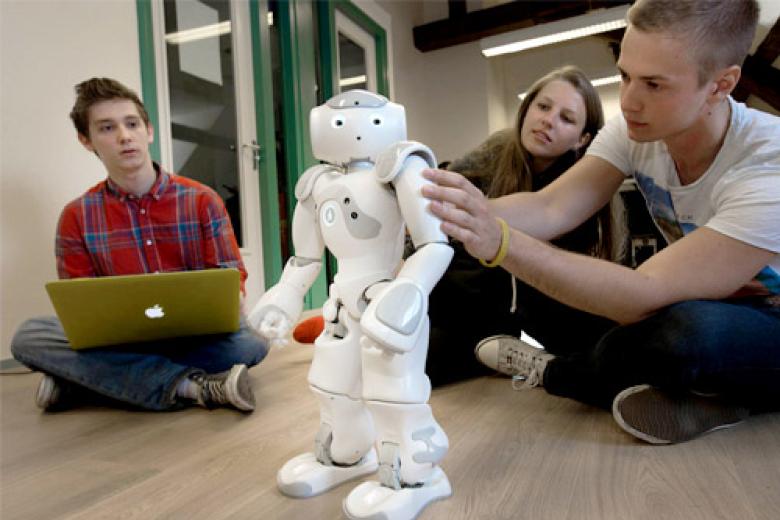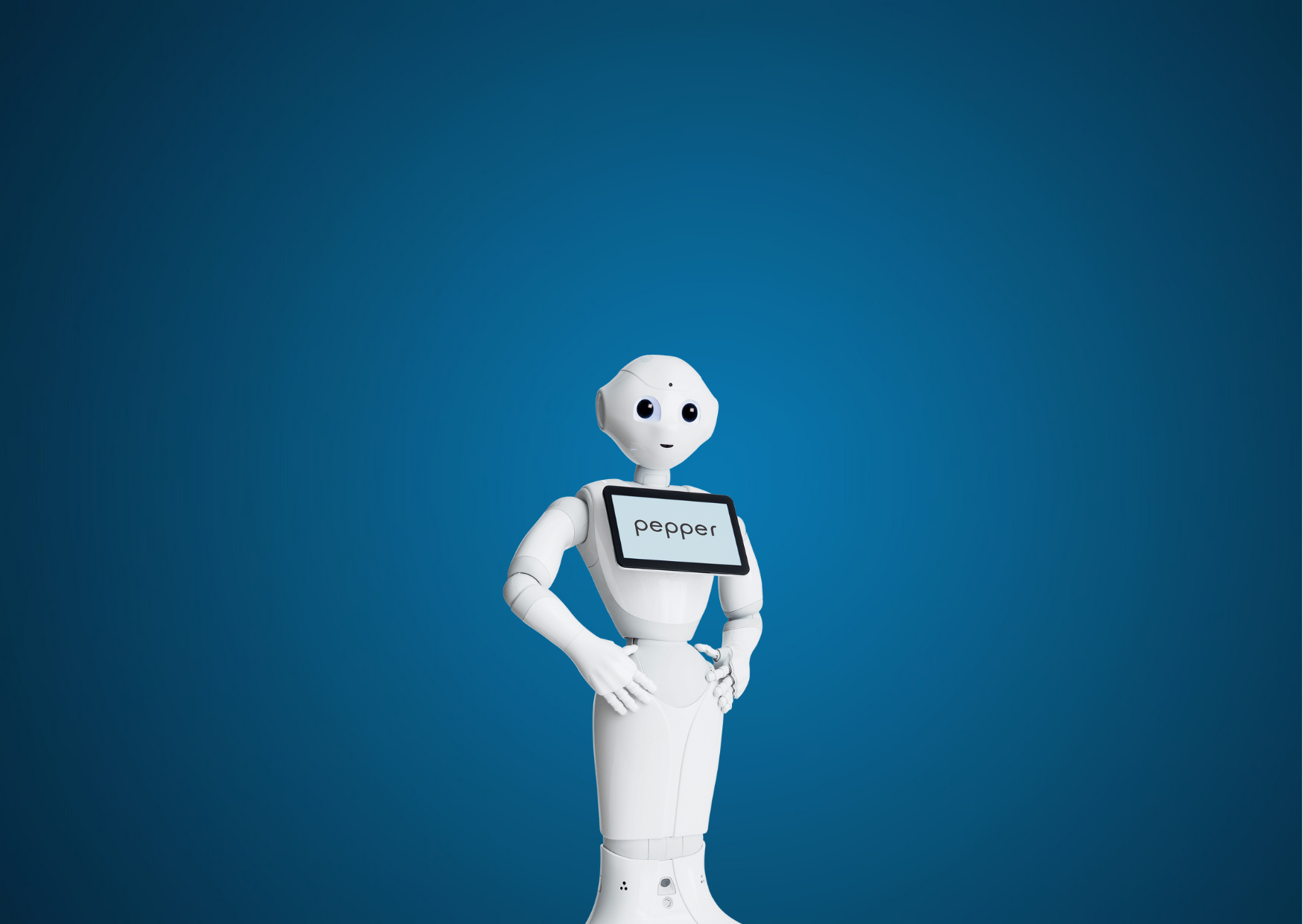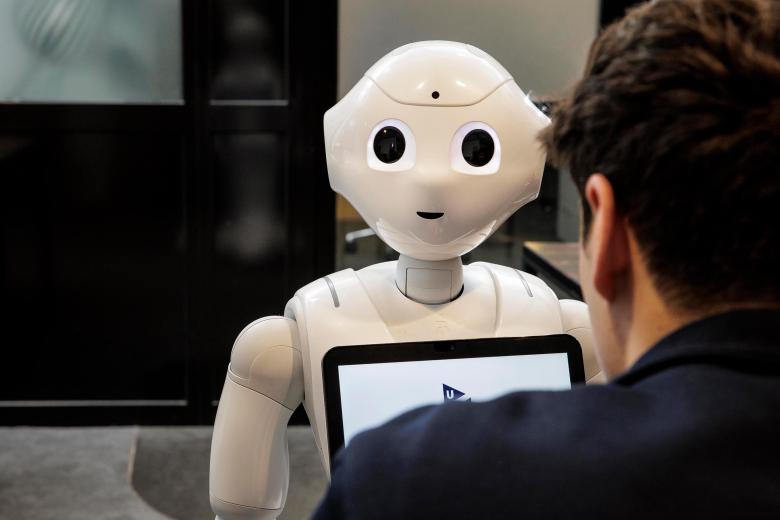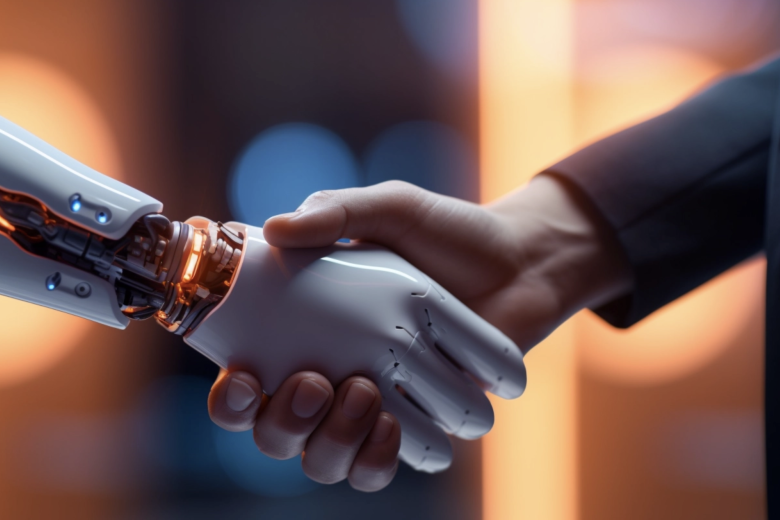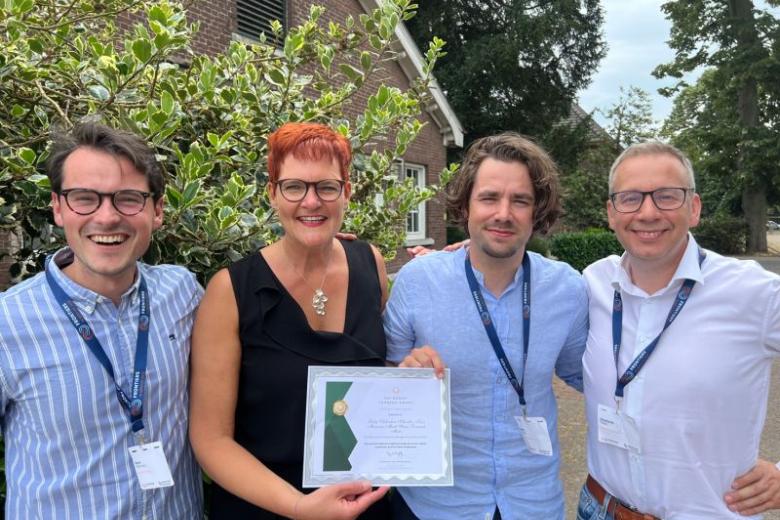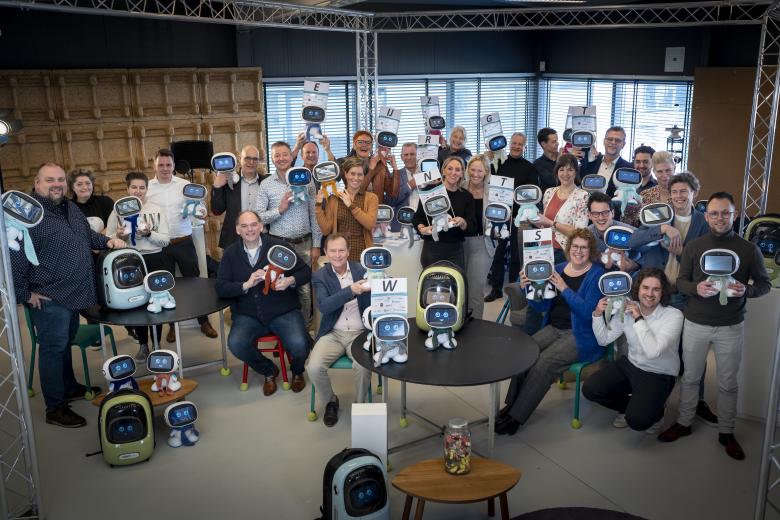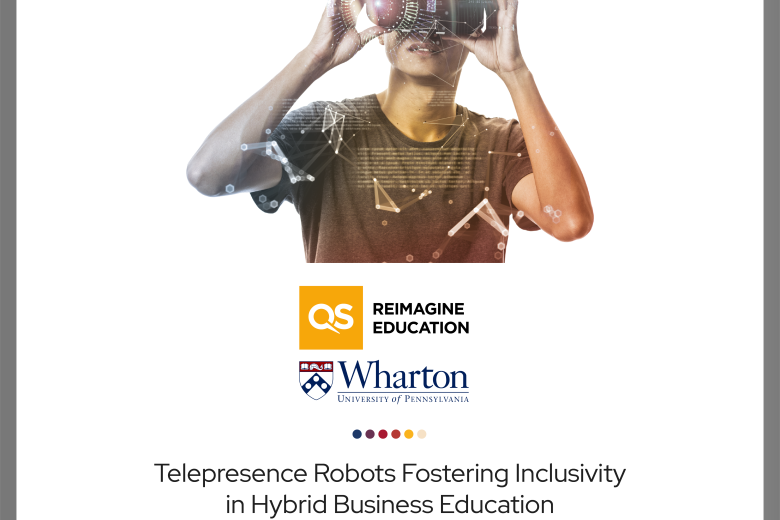The Maastricht Center for Robots
The Maastricht Center for Robots (MCR) focuses on the opportunities and challenges that arise from the rapid advancement of service and social robots. The center aims to enable the technology’s adoption and implementation as well as understand its impact on customers, employees, businesses, and society. To tackle the complex challenges and questions surrounding service robots, we closely collaborate with a global network of academic and industry partners that come from a wide range of fields and industries.
At the forefront of service robot advancements
Service robots that serve food, handle hotel check-ins, or assist the elderly are no longer science fiction. In fact, thousands of service robots are currently employed by service providers in the retail, hospitality, health care, and elderly care industries. Some of these service robots augment and help employees, others even fully replace them. As a result, service robots more and more interact with customers. These new forms of interactions offer great opportunities, but also come with great challenges. For example, it is currently not clear what service robots should look like, how they should act and behave, and how the services around them should be designed. It is equally unclear in what ways service robots can create or even destroy value.
At MCR, we leverage our tight collaboration between research and practice to tackle these challenges. Our goal is to support the adoption and implementation of service robots as well as understand their impact on customers, employees, businesses, and society. In this way, we seek to help the technology realise its full potential and have a sustainable impact on society.
Focus areas
- Service and social robots in unstructured environments
- Human-robot interactions
- Value creation and destruction potential of service robots
- Service triad (Service robots, customers, frontline employees)
Achieving more together
Tackling the complex challenges surrounding service robots requires knowledge and expertise from a wide range of fields. The strength of MCR lies in combining such insights and skills through our global network of academic and industry partners.
For example, our research partners from all over the world allow us to tap into the latest research and scientific knowledge on service robots. These partners include the School of Business and Economics at Maastricht University (The Netherlands), Queensland University of Technology Business School (Australia), University of Naples Federico II (Italy), EDHEC Business School (France), and others.
We also greatly profit from the expertise and experiences of our industry partners. These partners operate in a wide range of fields, including hospitality, financial services, health care, retailing, and elderly care. Their expertise and experience allow us to get a profound understanding of real-life customer-robot interactions. In addition, our partners involved in the development of service robots enable us to incorporate the latest service robot trends and developments into our research.
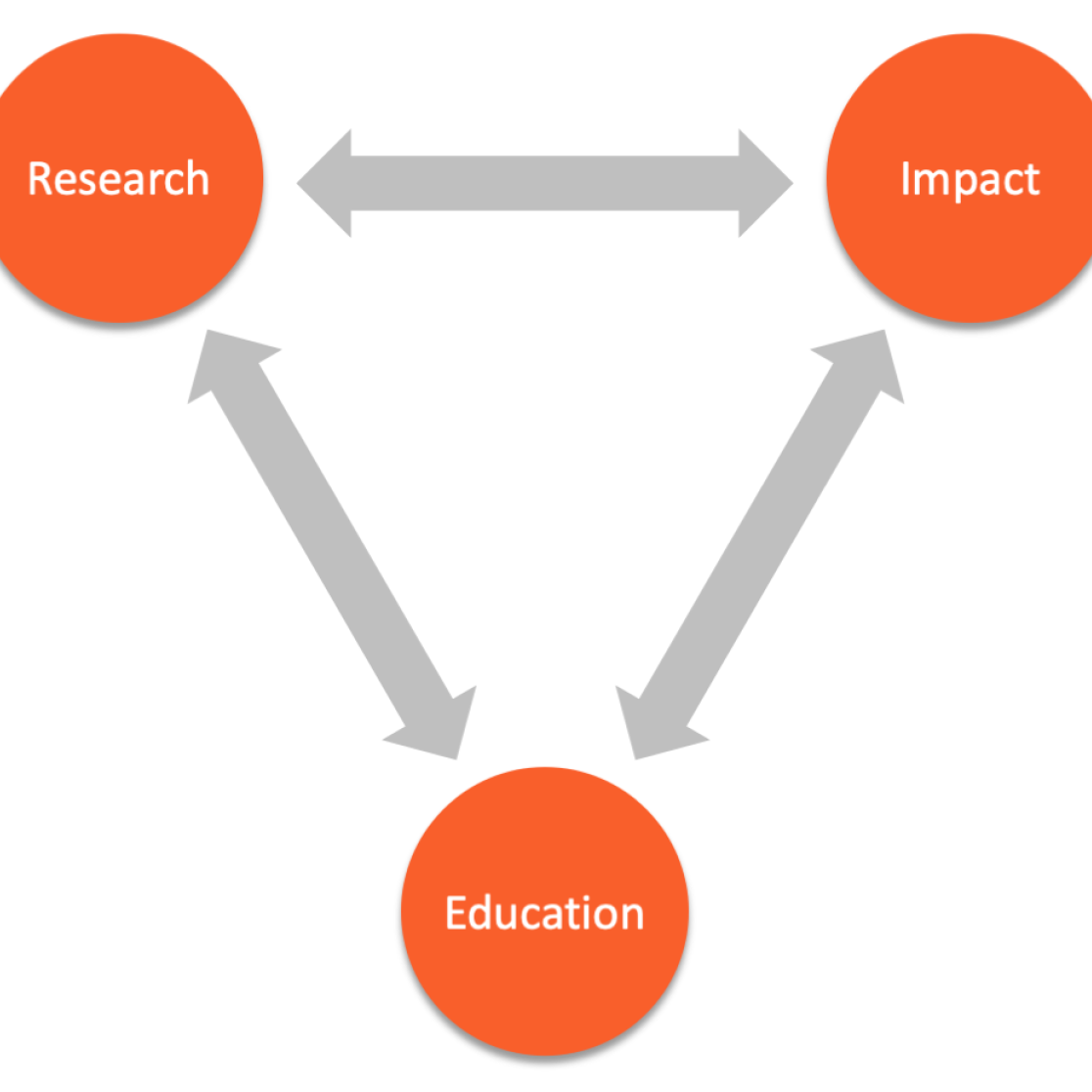
Uniting research, education, and impact
The MCR seeks to advance research, support businesses, and develop students’ competences. Many of our projects combine these three goals. For example, we organise workshops and competitions where students work on concrete business challenges and present their solutions to a company’s management. Through this integration of research, education, and impact, we aim to co-create value that is greater than the sum of its parts.
Research
- Academic research projects
- Research funding cooperation
- Master thesis projects

Impact
-
Inspiration seminars
-
Industry workshops
-
Robot co-creation sessions
- Policy recommendations

Education
- Course projects
- Hackathons
- Master thesis projects
- Case competitions
